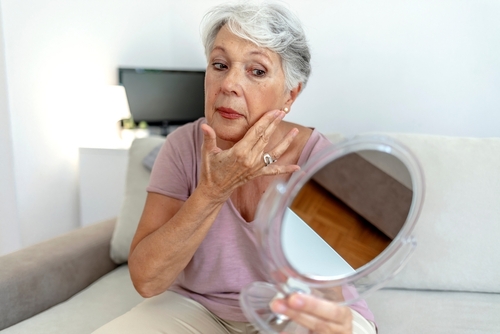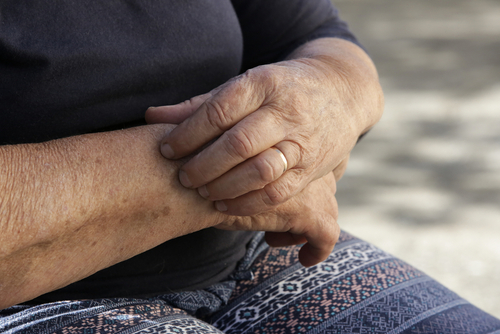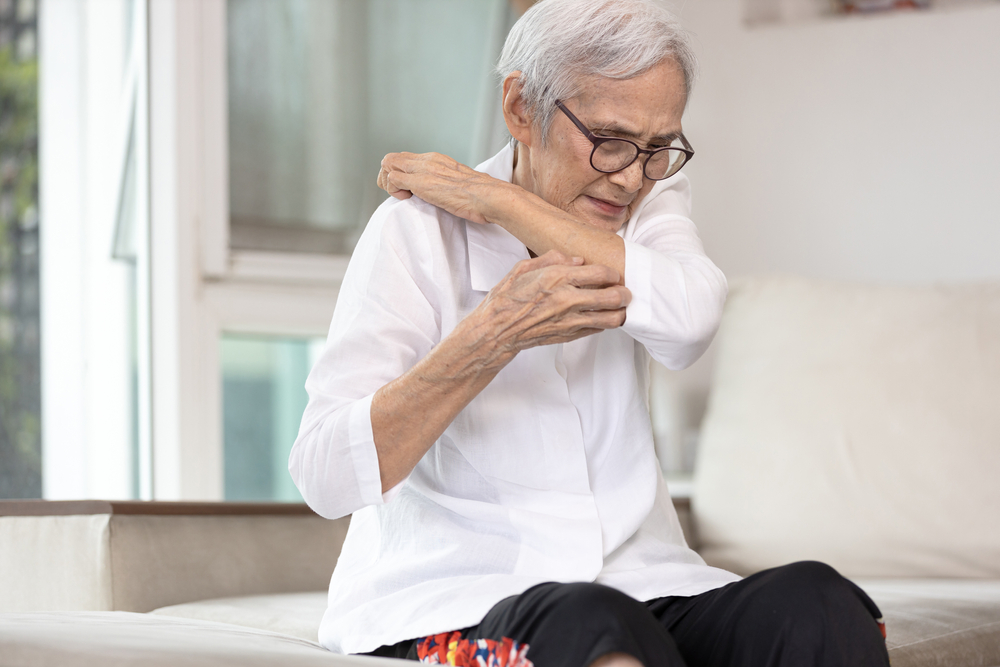What Causes Itchy Skin in the Elderly?
Category:

Itchy skin, also known as pruritus, can be quite annoying and debilitating. This is common in older adults because skin becomes drier, and therefore itchier, with age. However, this problem can be helped by determining the causes and performing some management techniques. In this post, we will review what you need to know about itchy skin in the elderly.
Symptoms of Itchy Skin in Elderly
Itchy skin can come with a variety of symptoms. These include:
-
Blisters, bumps, or spots
-
Dry, cracked skin
-
Leathery or scaly patches
-
Redness
-
Scratch marks
Speak with a doctor or a skin disease specialist if your symptoms last more than two weeks, distracts you from your daily routines, or is accompanied by other symptoms (i.e. weight loss, fever, or night sweats). Knowing the symptoms of chronic itching in the elderly can be helpful but what causes all of this irritation? In the next section we’ll take a look at the reasons behind itchy skin in the elderly.
Causes of Itchy Skin in Elderly
The causes of severe itching in the elderly can come from a variety of sources ranging from dermatological to psychological. Some of these causes can include:
-
Dermatological Causes
-
Xerosis, or dry skin
-
Sunburn
-
Eczema
-
Infections (i.e. tinea, candidiasis, and herpesvirus), including viral infections (measles or rubella) and bacterial infections
-
-
Neuropathic and Neurogenic Causes
-
Damage to nerve fibers, which can lead to a form of pruritus known as “itch without rash”
-
Damage to the central nervous system, which can lead to neurogenic pruritus
-
Neuralgia following a herpes infection
-
-
Psychiatric Causes
-
Anxiety
-
Stress
-
Depression
-
Obsessive-compulsive disorder
-
-
Systemic Diseases
-
Liver disease
-
Cirrhosis
-
Pancreatic cancer
-
Hepatitis
-
Diabetes mellitus
-
Thyroid disease
-
Hematological disorders
-
-
Medication Side Effects
-
Allergic reaction to an active medication or to the fillers or preservatives used in the drug’s preparation
-
Side effects involving the liver or kidneys
-
Opioids
-
Drugs leading to toxic epidermal necrolysis (TEN), also known as Lyell’s syndrome
-
Knowing what causes itchy skin in the elderly can help arm you with the information necessary to avoid these problems. Speak with your doctor immediately if you have chronic itchy skin to determine the exact cause and to possibly prevent it from happening in the future. Now that we know about some causes of itchy skin, let’s take a look at how to manage it.
Management for Itchy Skin in Elderly
Itchy skin can be quite debilitating and prevent you from enjoying day-to-day activities. Luckily there are plenty of ways you can manage it. You should:
-
DO
-
Take short, cool showers with soap-free substitutes
-
Pat dry skin rather than rub
-
Use moisturizers liberally after showering, preferably from a jar or tub rather than a pump
-
Use humidifiers to enhance ambient indoor humidity during dry, cold weather
-
Use creams and ointments, such as corticosteroid creams
-
Take medications as prescribed by your doctor
-
Participate in light therapy (phototherapy)
-
-
DON’T
-
Rely on excessive heat during cold weather, including use of heaters and electric blankets
-
Make direct contact with wool or synthetic garments
-
Keep your fingernails long as it may cause complications from scratching
-
Of course, speak with your doctor to help you decide on the best treatment for your itchy skin. Once this problem is taken care of, you’ll be back to living a normal life.
Subscribe
Date: November 4, 2021
Category:


